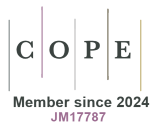Psoriasis at the time of COVID-19: results of an Italian survey on patients and caregivers
DOI:
https://doi.org/10.33393/ao.2022.2393Keywords:
Caregiver, COVID-19, Engagement, Psoriasis, Social MediaAbstract
Methods: A multiple-choice survey, addressing the first and the second waves of COVID-19 pandemic, was administered to psoriatic patients and their caregivers, to evaluate demographics, clinical data, patient’s perception and psychological impact with respect to the assistance received. Patient’s engagement was evaluated through Social Media interactions (reach and engagement of Facebook and Instagram about the website “La pelle conta”, lapellaconta.it).
Results: Preliminary results of the survey spanned in the time period from 30/9/2020 to 11/3/2021. Out of 852 patients, 83% were women. Seventy-three percent of patients declared that living with the disease worsened during the pandemic, with the onset or exacerbation of anxiety, stress, sense of helplessness, sadness and distress. A worsening in the assistance from the healthcare system was reported by 54% of the psoriatic patients. Two hundred fifteen caregivers took part to the survey and 84% were women. During the pandemic, a worsening in the symptoms of the patients was noted by 69% of the caregivers, and they also experienced sense of helplessness, anxiety, stress, sadness and distress themselves.
Conclusions: Although both the patients and the caregivers registered a worsening of symptoms and of quality of assistance and an increase of anxiety during the pandemic, in most of the cases the patients and their families were able to face difficulties, improving their relationship. The caregivers are central for patient assistance but they cannot be left alone.
References
- Menter A, Gottlieb A, Feldman SR, et al. Guidelines of care for the management of psoriasis and psoriatic arthritis: Section 1. Overview of psoriasis and guidelines of care for the treatment of psoriasis with biologics. J Am Acad Dermatol. 2008;58(5):826-850. https://doi.org/10.1016/j.jaad.2008.02.039 PMID:18423260 DOI: https://doi.org/10.1016/j.jaad.2008.02.039
- Naldi L. Epidemiology of psoriasis. Curr Drug Targets Inflamm Allergy. 2004;3(2):121-128. https://doi.org/10.2174/1568010043343958 PMID:15180464 DOI: https://doi.org/10.2174/1568010043343958
- Cortés H, Rojas-Marquez M, Del Prado-Audelo ML, et al. Alterations in mental health and quality of life in patients with skin disorders: a narrative review. Int J Dermatol 2021 20210817. https://doi.org/10.1111/ijd.15852. DOI: https://doi.org/10.1111/ijd.15852
- Gisondi P, Altomare G, Ayala F, et al. Italian guidelines on the systemic treatments of moderate-to-severe plaque psoriasis. J Eur Acad Dermatol Venereol. 2017;31(5):774-790. https://doi.org/10.1111/jdv.14114 PMID: 28244153 DOI: https://doi.org/10.1111/jdv.14114
- Gazzetta Ufficiale. 30 Dicembre 2020. N. 46/L (Accessed January 2022) Online https://www.gazzettaufficiale.it/eli/gu/2020/12/30/322/so/46/sg/pdf
- Mahil SK, Yates M, Yiu ZZN, et al. Describing the burden of the COVID-19 pandemic in people with psoriasis: findings from a global cross-sectional study. J Eur Acad Dermatol Venereol. 2021;35(10):e636-e640. https://doi.org/10.1111/jdv.17450 PMID: 34145643 DOI: https://doi.org/10.1111/jdv.17450
- Pirro F, Caldarola G, Chiricozzi A, et al. The impact of COVID-19 pandemic in a cohort of Italian psoriatic patients treated with biological therapies. J Dermatolog Treat. 2020;1-5:1-5. https://doi.org/10.1080/09546634.2020.1800578 PMID:32705945 DOI: https://doi.org/10.1080/09546634.2020.1800578
- Ninosu N, Roehrich F, Diehl K, Peitsch WK, Schaarschmidt ML. Psoriasis care during the time of COVID-19: real-world data on changes in treatments and appointments from a German university hospital. Eur J Dermatol. 2021;31(2):183-191. https://doi.org/10.1684/ejd.2021.4016PMID:33871361 DOI: https://doi.org/10.1684/ejd.2021.4016
- Potestio L, Camela E, Fabbrocini G, et al. Letter to the editor regarding article "Yalici-Armagan B, Tabak GH, Dogan-Gunaydin S, Gulseren D, Akdogan N, Atakan N. Treatment of psoriasis with biologics in the early COVID-19 pandemic: A study examining patient attitudes toward the treatment and disease course. J Cosmet Dermatol. 2021;00:1-5". J Cosmet Dermatol 2021; 20: 4073-4075. 20211028. https://doi.org/10.1111/jocd.14550 PMID: 34708906 DOI: https://doi.org/10.1111/jocd.14550
- Rob F, Hugo J, Tivadar S, et al. Compliance, safety concerns and anxiety in patients treated with biologics for psoriasis during the COVID-19 pandemic national lockdown: a multicenter study in the Czech Republic. J Eur Acad Dermatol Venereol 2020; 34: e682-e684. 20200709. https://doi.org/10.1111/jdv.16771 PMID: 32594549 DOI: https://doi.org/10.1111/jdv.16771
- Gisondi P, Bellinato F, Chiricozzi A, Girolomoni G. The Risk of COVID-19 Pandemic in Patients with Moderate to Severe Plaque Psoriasis Receiving Systemic Treatments. Vaccines (Basel). 2020;8(4):20201202. https://doi.org/10.3390/vaccines8040728 PMID:33276686 DOI: https://doi.org/10.3390/vaccines8040728
- Golinelli D, Boetto E, Carullo G, et al. Adoption of Digital Technologies in Health Care During the COVID-19 Pandemic: Systematic Review of Early Scientific Literature. J Med Internet Res 2020; 22: e22280. 20201106. https://doi.org/10.2196/22280 PMID: 33079693 DOI: https://doi.org/10.2196/22280
- Dhar VK, Kim Y, Graff JT, et al. Benefit of social media on patient engagement and satisfaction: Results of a 9-month, qualitative pilot study using Facebook. Surgery 2018; 163: 565-570. 20171129. https://doi.org/10.1016/j.surg.2017.09.056 PMID: 29195735 DOI: https://doi.org/10.1016/j.surg.2017.09.056
- Kotrulja L, Tadinac M, Joki-Begi NA, Gregurek R. A multivariate analysis of clinical severity, psychological distress and psychopathological traits in psoriatic patients. Acta Derm Venereol. 2010;90(3):251-256. https://doi.org/10.2340/00015555-0838 PMID:20526541 DOI: https://doi.org/10.2340/00015555-0838
- Lubrano E, Delle Sedie A, Romanelli M, et al. Management of psoriatic arthritis in rheumatology and dermatology settings: sub-analysis of the Italian population from the international LOOP study. Clin Rheumatol2021; 40: 2251-2262. 20201106. https://doi.org/10.1007/s10067-020-05482-w PMID: 33155160 DOI: https://doi.org/10.1007/s10067-020-05482-w
- Theander E, Husmark T, Alenius GM, et al. Early psoriatic arthritis: short symptom duration, male gender and preserved physical functioning at presentation predict favourable outcome at 5-year follow-up. Results from the Swedish Early Psoriatic Arthritis Register (SwePsA). Ann Rheum Dis 2014; 73: 407-413. 20130125. https://doi.org/10.1136/annrheumdis-2012-201972 PMID: 23355078 DOI: https://doi.org/10.1136/annrheumdis-2012-201972









